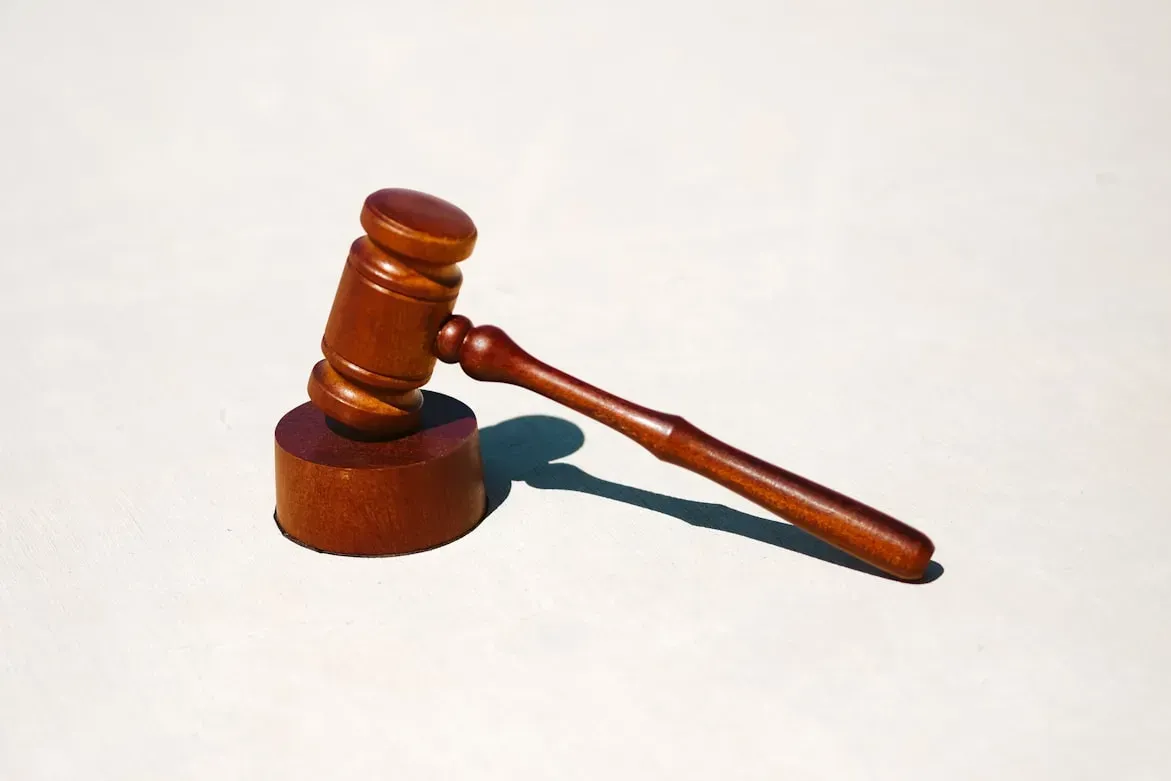Understanding When and Why Custody Arrangements Can Change
Custody arrangements can be complex and emotional. Understanding why a judge might change custody is essential for parents. It helps to navigate the legal process and ensure the best outcome for the child.
In this blog, we'll explore the common reasons for custody changes, such as the child's best interests, parental misconduct, changes in parental circumstances, the child's preference, and compliance with existing custody agreements. We'll also discuss the legal process for modifying custody and how to prepare for a custody change case.

Common Reasons for Changing Custody
Child's Best Interests
The main concern in any custody decision is what is best for the child. Judges look at many factors to see what will help the child the most.
What 'Best Interests of the Child' Means
Judges think about the child's age, health, emotional ties with each parent, how stable each home is, and how well each parent can meet the child's needs. They want to make sure the child grows up in a good environment. For example, if a child is very young, they might need more stability and frequent contact with one primary caregiver. If a child has special medical needs, judges look at which parent can better manage those needs.
How Changes in the Child's Needs Can Change Custody
If a child's needs change a lot, the judge might change the custody arrangement. For example, imagine a child develops severe asthma. One parent lives in a city with high pollution, while the other lives in the countryside where the air is cleaner. The judge might decide that the child should spend more time with the parent in the countryside to help manage their asthma. This change ensures the child can breathe easier and stay healthier.
Another example could be if the child starts needing special education services that are only available near one parent's home. If one parent lives close to a school that offers these services, the judge might change the custody arrangement so the child can get the education they need. This way, the child's new needs are met in the best way possible.
Parental Misconduct
Parental misconduct is a serious reason for changing custody. Judges will not hesitate to alter arrangements if one parent is putting the child at risk.
Examples of Misconduct
Misconduct can include abuse, neglect, or substance abuse. For instance, if a parent is found to be physically or emotionally abusive, the judge will likely reduce or remove their custody rights. Neglect, such as failing to provide basic needs like food, shelter, or medical care, is another reason for a custody change. Substance abuse is also critical. If a parent is using drugs or alcohol in a way that affects their ability to care for the child, the court will act to protect the child.
Legal Implications and Process
Proving misconduct involves gathering evidence. This can include police reports, medical records, or testimony from witnesses. The court needs clear proof to ensure the child's safety. Once misconduct is proven, the judge may order supervised visitation, limit custody, or in severe cases, terminate parental rights. The child's well-being is always the priority.
Changes in Parental Circumstances
Changes in a parent's life can significantly impact custody arrangements. Judges consider how these changes affect the child's well-being.
Situations Like Relocation
Relocation is a common reason for changing custody. If a parent moves to a new city or state, the judge will consider how this move impacts the child's life. They look at the distance, the quality of the new environment, and how the move affects the child's routine and access to both parents. For example, if one parent moves far away for a job, the court might adjust custody to minimize disruption to the child's life.
Changes in Employment
Changes in employment, such as a new job with demanding hours or job loss, can also prompt custody changes. A parent with a new job that requires long hours might not be able to spend as much time with the child. Conversely, a parent who loses their job might struggle to provide for the child's needs. The judge will evaluate these factors to determine if a change in custody is necessary to ensure the child's stability.
Changes in Marital Status
Remarriage or divorce can affect custody arrangements too. A new spouse might bring a supportive environment, or, conversely, a new divorce might create instability. Judges look at how these changes impact the child's daily life and emotional health.
Child's Preference
As children grow older, their preferences become more important in custody decisions. Judges take into account the child’s wishes when determining custody arrangements.
At What Age a Child's Preference is Considered
Judges typically start considering a child's preference around the age of 12, but this can vary. The court looks at the child's maturity and ability to express a reasoned preference. For instance, a mature 10-year-old might have their preferences considered, while a less mature 14-year-old might not.
The Weight Given to a Child's Preference in Court Decisions
The weight of a child's preference depends on the reasons behind it. If a child prefers one parent because they have fewer rules, the judge may not give much weight to that preference. However, if the child prefers one parent because they feel safer or more supported, the judge is likely to consider it more seriously. The judge will also ensure that the child's preference is not influenced by either parent unduly. The child's best interests always remain the guiding principle.
Failure to Comply with Existing Custody Arrangements
Following court-ordered custody arrangements is crucial. Failure to comply can lead to significant changes in custody.
What Constitutes a Violation of Custody Agreements
Violations can include consistently missing scheduled visits, not returning the child on time, or not allowing the other parent their designated time with the child. These actions show disrespect for the court's order and can disrupt the child's stability and routine.
Legal Consequences of Repeated Violations
Repeated violations can lead to serious legal consequences. A judge may impose fines, change the custody arrangement to reduce the offending parent's time, or even grant full custody to the other parent. For example, if a parent frequently fails to return the child after visitation, the judge might decide that the child's best interests are served by limiting that parent's access. The goal is to ensure that the child has a stable and predictable schedule.
Legal Process for Changing Custody
Filing a Petition
The first step in changing custody is filing a petition with the court. This process requires careful preparation and attention to detail.
Steps Involved in Filing for a Custody Modification
To start, you need to complete and submit the necessary forms to the court. These forms outline your request for a custody change and provide reasons for the request. It’s crucial to clearly state the changes in circumstances that justify the modification. After filing, you must serve the other parent with the petition. This legal step ensures that both parties are aware of the proceedings.
Required Documentation and Legal Standards
Supporting documentation is essential. This can include evidence of changes in circumstances, such as new job information, medical records, or proof of the other parent's misconduct. You need to meet the legal standards for custody modification, which typically require demonstrating that the change is in the best interests of the child. The court will review the documentation to ensure the request is justified and substantiated.
Court Evaluation
After filing the petition, the court will evaluate the request. This process involves several steps to ensure the child’s best interests are prioritized.
What to Expect During the Court Evaluation Process
The court will review the submitted documents and may schedule a hearing. During this period, both parents might be asked to provide additional information or evidence. The court will also consider reports from any involved professionals, such as social workers or therapists, who can provide insights into the child's needs and the parent's capabilities.
Role of Mediators and Child Custody Evaluators
Mediators may be involved to help parents reach an agreement outside of court. This process can be less stressful and faster than a court battle. If mediation fails, a child custody evaluator might be appointed. The evaluator will conduct interviews, home visits, and gather information to make a recommendation to the court. This recommendation can heavily influence the judge's final decision.
Hearing and Decision
The final step in the custody modification process is the court hearing, where a judge will make a decision based on all the gathered information.
Overview of the Custody Hearing
During the hearing, both parents present their case. This includes providing evidence and calling witnesses if necessary. Each parent will have the opportunity to explain why the custody arrangement should or should not be changed. The judge may ask questions to clarify details and better understand the situation.
How Judges Make Their Final Decisions
Judges make decisions based on the best interests of the child, considering all presented evidence, testimonies, and recommendations from mediators or evaluators. They weigh factors such as the child's needs, the parents' ability to meet those needs, and any changes in circumstances. The judge's goal is to create a stable and supportive environment for the child. Once the judge reaches a decision, it becomes a court order that both parents must follow.
Preparing for a Custody Change Case
Gathering Evidence
Strong evidence is critical in supporting a request for a custody change. Proper preparation can make a significant difference in the outcome.
Types of Evidence Needed to Support a Custody Change
Request Gather documentation that demonstrates the need for a custody change. This can include medical records, school reports, and evidence of changes in the child's needs. Also, collect any proof of parental misconduct, like police reports or witness statements. Financial records can show changes in employment or income that affect the parent's ability to care for the child.
Tips for Collecting and Organizing Evidence
Start by keeping a detailed log of relevant events. Document interactions, incidents, and changes that impact the child's well-being. Organize all paperwork in a clear and logical manner. Create copies of important documents and keep everything easily accessible for the court process. This organization helps present a clear and compelling case to the judge.
Legal Representation
Having a qualified attorney can greatly influence the outcome of a custody change case. They provide expertise and support throughout the process.
Importance of Hiring a Qualified Child Custody Attorney
An experienced child custody attorney understands the legal standards and procedures. They can help you navigate the complexities of filing petitions, presenting evidence, and arguing your case in court. An attorney can also offer valuable advice on strategy and help avoid common mistakes that might weaken your case.
How an Attorney Can Assist in the Process
An attorney will handle the paperwork and ensure that all forms are correctly filled out and submitted on time. They will represent you in court, presenting your evidence and making persuasive arguments on your behalf. Additionally, an attorney can negotiate with the other parent’s legal team to reach a settlement that benefits the child and avoids a lengthy court battle. Having professional representation increases your chances of a favorable outcome.
Emotional Preparation
Preparing emotionally for a custody change case is just as important as the legal preparations. Both parents and children need to be ready for the challenges ahead.
Preparing Yourself and Your Child Emotionally
Talk to your child about the changes in a calm and reassuring way. Explain what might happen and emphasize that both parents love them and want what is best for them. Make sure they understand that the changes are about making sure they are happy and safe. For yourself, find healthy ways to manage stress. Consider talking to a therapist or counselor to help you navigate your emotions during this time.
Seeking Support from Professionals and Loved Ones
Lean on your support network. Friends, family, and professionals can provide emotional support and practical advice. Therapists can offer coping strategies and a safe space to express your feelings. Joining a support group for parents going through custody changes can also be helpful, providing shared experiences and understanding.
Conclusion
Changing custody arrangements centers on the child's best interests. Judges consider many factors, including changes in the child's needs, parental misconduct, and the child's own preferences. Significant changes in a parent's life, like relocation or job shifts, can also prompt adjustments in custody. Violations of existing custody agreements are taken seriously and can lead to modifications.
Understanding the legal process is essential. Filing a petition, undergoing court evaluations, and preparing for hearings require careful planning. Gathering solid evidence and securing strong legal representation can significantly impact the outcome. Emotional preparation, both for yourself and your child, is equally important for a smooth transition.
Each of these elements plays a key role in how custody decisions are made and adjusted. It’s a journey that requires understanding, preparation, and support. Remember, the ultimate goal is to create a stable and nurturing environment for the child.
Call to Action
If you are navigating the challenges of custody changes, consider reaching out to Equal Rights for Divorced Fathers. Located in Las Vegas, this dedicated advocacy organization champions the cause of fathers facing post-divorce challenges. They believe in equality and strive to ensure fathers have the same parenting rights and opportunities as mothers.
Equal Rights for Divorced Fathers offers a comprehensive suite of services tailored to the unique needs of divorced fathers. They help navigate family court proceedings, custody battles, and parenting arrangements. Their experienced team works tirelessly to ensure fathers are heard and afforded the rights they deserve.
Beyond legal guidance, they provide educational resources and emotional support, helping fathers build strong, healthy relationships with their children. As a pillar of support in the Las Vegas community, they empower fathers to actively participate in their children's lives. Contact Equal Rights for Divorced Fathers today to get the support you need and deserve.

